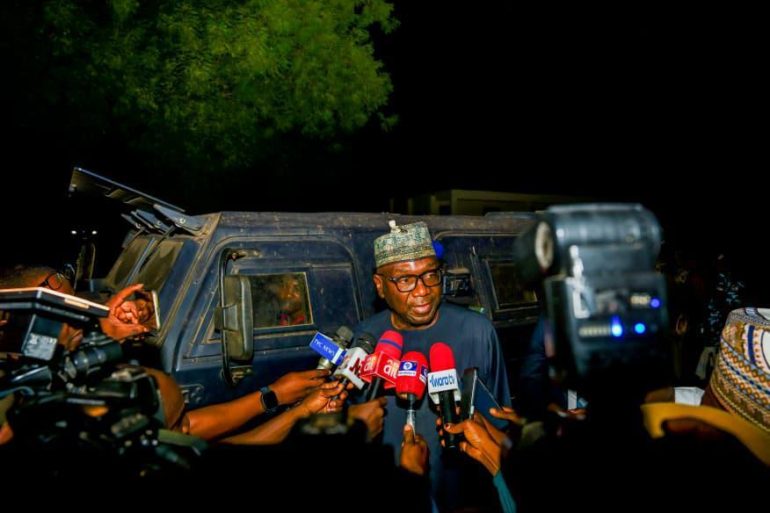Listeners:
Top listeners:
-
play_arrow
104.9FM Best rock music demo
-
play_arrow
Demo Radio Nr.1 For New Music And All The Hits!
-
play_arrow
Demo Radio Techno Top Music Radio
-
 play_arrow
play_arrow
Police Commissioner Launches Weapon and Riot Control Training for FCT Officers Democracy Radio
IPC Launches Report on Rebuilding Trust in Nigeria’s Electoral Process

By Chinedu Echianu
The International Press Centre (IPC) has formally unveiled its comprehensive report on “Rebuilding Trust in Nigeria’s Electoral Process, Electoral Institutions and Elections”—a culmination of nationwide media-led dialogue sessions held across the country’s six geo-political zones between 2023 and 2025.
The event, held in Abuja, marks a key milestone in IPC’s implementation of Component 4: Support to Media under the European Union Support to Democratic Governance in Nigeria (EU-SDGN II) project, where IPC serves as the lead partner.
The report presents insights drawn from a series of multi-stakeholder dialogues that brought together journalists, electoral officials, civil society representatives, political actors, and security agencies to discuss practical strategies for restoring citizens’ confidence in the electoral process.
Speaking at the public presentation, IPC Programme Manager, Stella Nwofia, said the launch was “an occasion marked by both reflection and resolve,” emphasizing that rebuilding trust in Nigeria’s elections required a collective effort by all democratic stakeholders.
“The media serves as both a mirror and a mediator—reflecting public sentiment while shaping peace,” Nwofia noted. “Trust in electoral institutions is closely linked to the quality, consistency and credibility of information shared before, during and after elections.”
She added that while Nigeria’s electoral framework has seen improvements through technology and civic engagement, significant perception challenges remain, particularly regarding transparency and accountability across all actors involved in the process.
The second phase of the event featured the signing of a Memorandum of Understanding (MoU) between IPC, the Nigeria Association of Women Journalists (NAWOJ) and the Guild of Corporate Online Publishers (GOCOP). The MoU aims to strengthen media collaboration toward inclusive, ethical, and public interest-driven election reporting.
According to Nwofia, the agreement also sets performance benchmarks for improving professionalism and gender-sensitive coverage of electoral issues and campaign promises.
Delivering the keynote address, Professor Okey Ibeanu, a political scientist and governance expert, underscored that “trust is the currency of democracy.”
He argued that no electoral system could function effectively without public confidence in the institutions responsible for its management, including the Independent National Electoral Commission (INEC), the judiciary, the legislature, and the media.
“Elections are built on trust—trust that the rules will be upheld, that those conducting the elections are capable and professional, and that when the system fails, there are credible mechanisms for redress,” Ibeanu stated.
He further noted that rebuilding trust requires a broader societal effort to strengthen accountability, enhance professional conduct, and promote civic engagement in holding institutions responsible.
In his goodwill message, Nigeria Labour Congress (NLC) President, Comrade Joe Ajaero, described the IPC initiative as “a vital act of resistance” against the erosion of democratic accountability in Nigeria.
“Our electoral process has become a marketplace where votes are auctioned and the will of the people subverted,” Ajaero lamented. “The media must rise as the compass that guides the nation toward genuine democracy—not as a tool for legitimizing its counterfeit.”
He called on journalists to maintain integrity, courage, and commitment to the truth as Nigeria approaches another general election cycle in 2027, adding that the NLC stands ready to collaborate with credible institutions to protect the nation’s democracy.
The IPC report and new media partnership are expected to serve as key reference tools for stakeholders seeking to promote electoral transparency, strengthen institutional credibility, and rebuild public trust in Nigeria’s democratic governance.
Written by: Toyeebaht Aremu
Similar posts
Copyright Democracy Radio -2024


